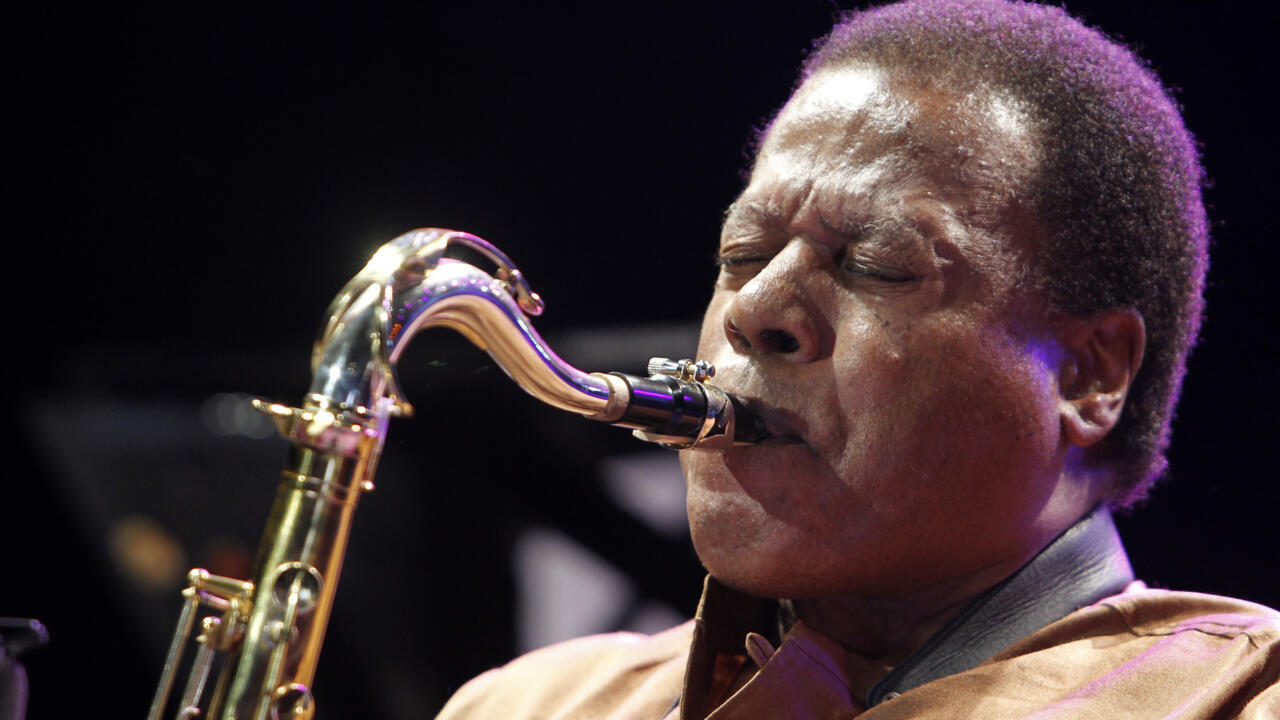Considered one of the greatest jazz composers in the United States, this "visionary" African-American artist born August 25, 1933 in Newark, near New York, died on the other side of the country, in Los Angeles, announced in a press release his agent Alisse Kingsley.
Quoted in this press release, the giant Herbie Hancock, his "closest friend for more than six decades", bowed to an "irreplaceable human being, capable of reaching the pinnacle of excellence, as a saxophonist, composer, arranger and recently composer of the opera +... (Iphigenia)+".
Among the first to react, the American trumpeter Wynton Marsalis hailed his 30-year-old eldest, who "improved everything he touched and who will remain a purveyor of pentatonic perfection, master of melodies declined in blues, hero of vertical harmonic effects and horizontal and giant of the saxophone whatever the musical register.
Pianist Herbie Hancock and saxophonist Wayne Shorter during a jazz concert in New Delhi on January 16, 2007 in India © MANPREET ROMANA / AFP/Archives
The young virtuoso pianist from New Orleans Jon Batiste also paid tribute to Shorter, "truly unique", posting a short video on Twitter where the two men share a moment of musical complicity.
"Thirteen Grammys"
His agent recalled that "Shorter's works have been played by the symphony orchestras of Chicago, Detroit, Lyon, Polish radio..." and that he again won his 13th Grammy Award in February, the Oscars of the music industry.
Friend and collaborator of the greats -- Miles Davis, Herbie Hancock, Art Blakey -- he excelled on both soprano and tenor saxophone, notably with his 1970s and 1980s jazz fusion band, Weather Report.
American saxophonist Wayne Shorter, July 18, 1986 in Nice, in the south of France © Christophe SIMON / AFP
Eclectic and able to approach many musical registers, Wayne Shorter has accompanied the Brazilian Milton Nascimento, the Malian Salif Keita, the Canadian Joni Mitchell and even the British rockers of the Rolling Stones, the Mexican guitarist Carlos Santana or the New York pop singer Norah Jones.
By the 1960s, Wayne Shorter had managed to impose a third voice in jazz, during a period dominated by legendary saxophonists John Coltrane and Sonny Rollins.
With his brother Alan Shorter (1932-1988), they played bebop and nicknamed themselves "Mr Weird" ("Monsieur Bizarre") and "Doc Strange" ("Docteur Etrange"), wearing dark glasses in the half-light of clubs. jazz.
He was one of the last giants of the sax, a jazz instrument he had embraced in the 1950s after an adolescence as a clarinettist.
American saxophonist Wayne Shorter at the Marciac Jazz Festival, August 13, 2005 in the south of France © Lionel BONAVENTURE / AFP/Archives
"I knew that people were starting an instrument at the age of five, so I knew that I had a lot of catching up to do," Shorter noted with a hint of mischief in 2018 with the Washington Post, before receiving Lifetime Achievement Award from the Kennedy Cultural Center in Washington.
© 2023 AFP

